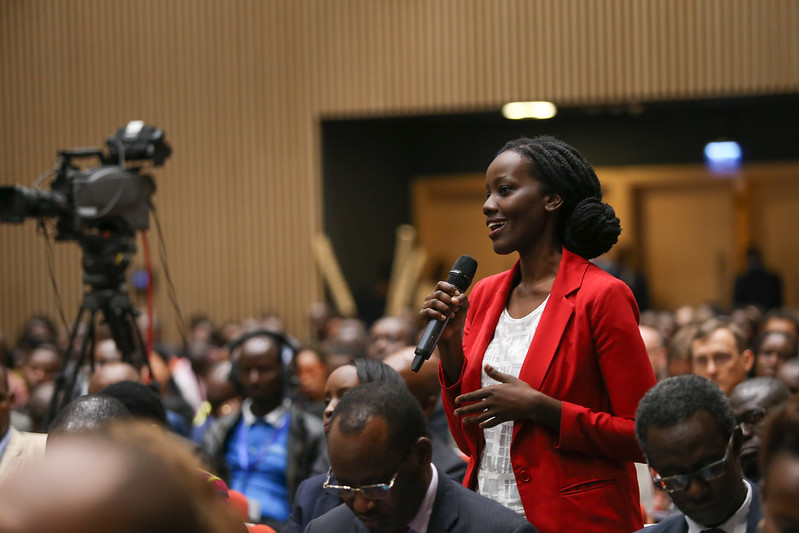COP26 Catalyst for Climate Action Assembly at Africa Climate Week

From 26-29 September 2021, the COP26 Catalyst for Climate Action Assembly will take place, during UNFCCC Africa Climate Week. Programme Director Matthew Booth invites you to register today for these timely events.
As incoming COP26 Presidency, the UK is committed to better understanding the capacity building challenges faced by developing countries, particularly those most vulnerable to climate impact, and to providing opportunities to share positive experiences and lessons learned across Africa.
To do this, Wilton Park is hosting a number of capacity building sessions during Africa Climate Week (26-29 September) on:
- Adaptation Action
- Access to Finance
- Carbon Markets Participation
- Transparency & Reporting
An opening plenary session will be taking place on Monday 27 September.
Full event details and sign up pages can be found below and at this link: COP26 Catalyst for Climate Action Assembly for Africa – Wilton Park
Opening plenary: Monday 27 September, 1600-1730 Uganda |1400-1530 United Kingdom
This opening session of the COP26 Catalyst for Climate Action will better understand the capacity building challenges and share positive experiences and lessons learned across Africa.
Transparency and Reporting: Monday 27 September, 1700-1830 Uganda | 1500-1630 United Kingdom
Strong mechanisms to report on greenhouse gas emissions, progress in achieving NDCs and adaptation plans and are key to achieving ambitious outcomes under the Paris Agreement. All countries need to be able to produce reliable, transparent and comprehensive information on emissions, climate actions and support under the Enhanced Transparency Framework – transfer of support and long-term capacity building is crucial if we are to achieve a sustained approach. This session will introduce the COP26 Catalyst’s work on transparency and reporting: outlining existing support, challenges and experiences from the region and beyond. Attendees will be welcome to share their views on capacity building and support challenges in this area and to suggest potential areas of focus for our work.
Access to Finance: Tuesday 28 September, 0900-1030 Uganda | 0700-0830 United Kingdom
Capacity building to improve access to finance has been highlighted as a priority area of need. For example, country partners have noted a lack of institutional capacity both within national governments and at the local level to access finance from different sources, including from multilateral climate funds. Another highlighted need is to strengthen relationships between those providing climate finance and those trying to access it. This session will aim to explore capacity building needs in relation to accessing climate finance, to understand in detail the key challenges that Parties and partners have in developing this capacity to access finance and to learn from best practice examples. This will touch on experiences of capacity building for access to finance within the region and will also look more broadly at global examples.
Adaptation Action: Tuesday 28 September, 1700-1900 Uganda | 1500-1700 United Kingdom
This session will focus on preparing an Adaptation Communication (ADCOM) to the UNFCCC. As many countries are preparing their first ADCOM, this session will be an opportunity for South-South peer learning and exchange to compare approaches and share common questions. It will also explore how countries are leveraging existing adaptation planning processes (including through National Adaptation Plans, Nationally Determined Contributions, and National Communications) to reduce reporting burdens and deliver well-coordinated national approaches to adaptation.
Carbon Markets Participation: Wednesday 29 September, 0900-1030 Uganda | 0700-0830 United Kingdom
Many countries have signalled that they intend on, or are willing to consider, using carbon markets to meet their NDC targets. At the same time, many developing countries have highlighted their need for capacity building support to enable them to take advantage fully of these opportunities. This session will provide space to discuss what opportunities are available, including through looking at particular case studies of where carbon market mechanisms have been developed, implemented or where they are being considered. Including focus on what has worked and why in terms of capacity building and where the barriers are to increasing participation, particularly by those who are least developed.
Image (above right), young people in Rwanda speak up – courtesy World Bank photo collection